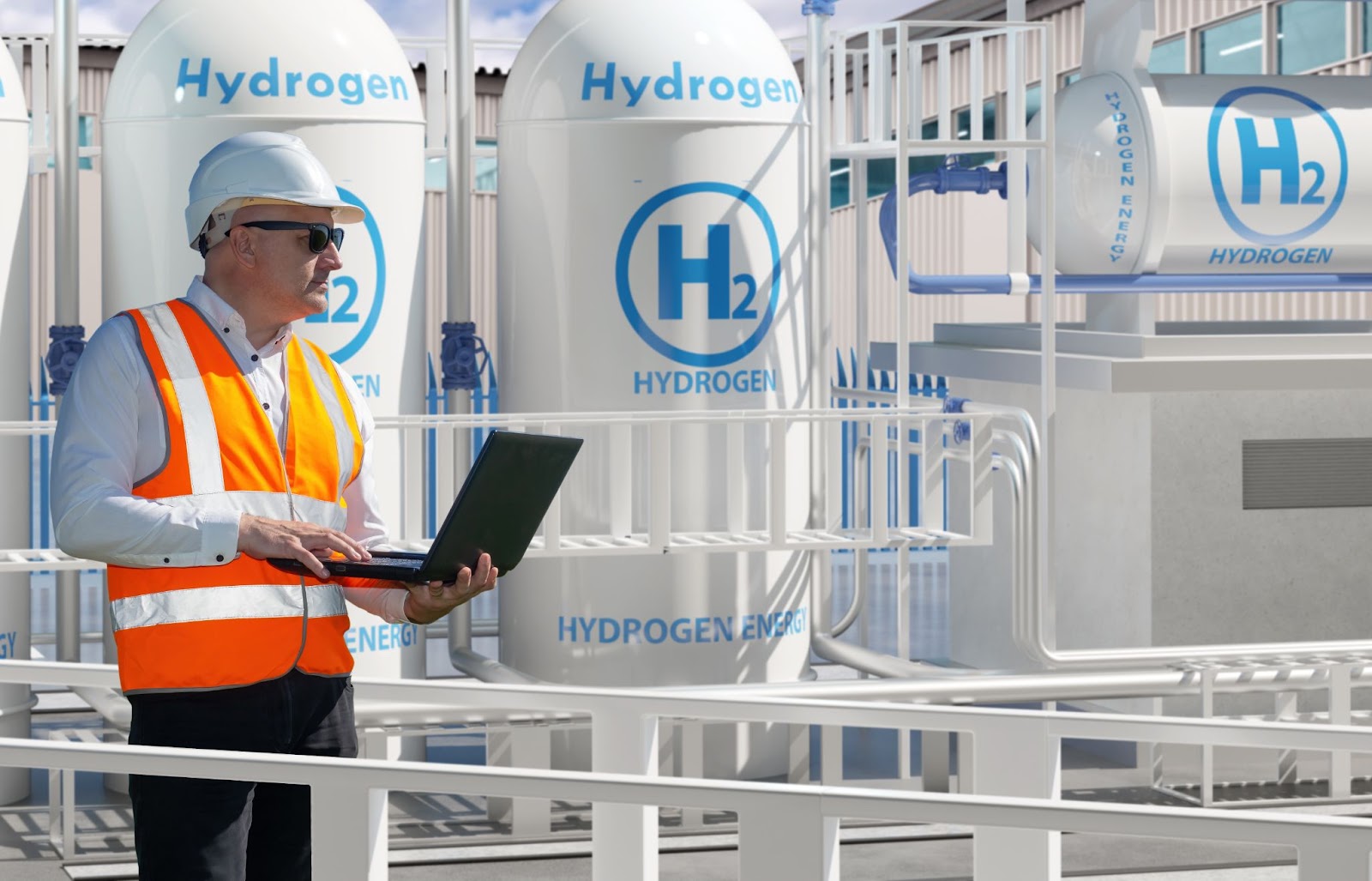Hydrogen, the most abundant element in the universe, has been gaining significant attention in recent years as a promising renewable energy source. As our world faces the challenges of climate change and seeks to transition away from fossil fuels, hydrogen offers a clean and efficient alternative with a wide range of applications.
In this guide, we will explore hydrogen energy, its definition, production methods, applications in various industries, advantages over traditional fossil fuels, and the challenges it presents. We will also discuss the importance of safety and how companies like RedGuard are pioneering the development of blast resistant buildings for hydrogen facilities.
Hydrogen is the simplest and most abundant element in the universe, making up approximately 75% of all matter. It is a colorless, odorless, and highly reactive gas. Hydrogen can be produced domestically from various sources, including natural gas, coal, solar energy, wind, and biomass. This versatile element plays a crucial role in sustaining life and offers numerous potential applications in various industries.
Hydrogen boasts an array of practical and potential uses across different industries. One of its prominent applications lies in industrial processes, including refining petroleum, treating metals, producing fertilizer and chemicals, and food processing. In the United States, nearly all the hydrogen consumed is utilized by industries for these purposes.
Hydrogen also holds promise in the field of electric power generation. Operators of natural gas-fired power plants are exploring the integration of hydrogen to supplement or replace natural gas, providing an effective means of energy storage.
Hydrogen fuel cells offer a clean and efficient method for producing electricity by combining hydrogen and oxygen atoms through an electrochemical process, resulting in electricity generation, water, and minimal heat production. This technology is not only applicable in electricity generation but also in powering vehicles, presenting a sustainable alternative to traditional fossil fuels.
Hydrogen serves as both a fuel and an energy carrier, making it incredibly versatile in the renewable energy industry. Its applications are in industrial sectors, including industrial gas plants and oil refineries, where it helps in the production of ammonia and in the removal of sulfur from petroleum products. Additionally, hydrogen plays a vital role in electricity generation through fuel cells and can be used to store excess energy from intermittent renewable sources, thereby enhancing grid stability.

One of the most significant advantages of hydrogen is its ability to produce energy with zero harmful emissions. When used in fuel cells, hydrogen generates electricity and heat, leaving only water vapor as a byproduct. This stands in stark contrast to traditional fossil fuels that release greenhouse gases and contribute to global warming. Hydrogen can be produced from renewable sources, making it a sustainable and clean energy carrier.
Despite its immense potential, the widespread adoption of hydrogen faces certain challenges.

Despite its eco-friendly nature, hydrogen does come with inherent hazards. Being an extremely flammable gas, it poses explosion and fire risks if not handled and stored properly. However, comprehensive risk assessment, adherence to safety protocols, and investment in innovative safety measures, such as grounding and blast resistant buildings, can minimize these risks and ensure the safe utilization of hydrogen.

In the quest for safe hydrogen production and storage, specialized buildings play a critical role. Companies like RedGuard are pioneering the development of blast resistant buildings and pressurized structures for hydrogen and ammonia facilities. These buildings are designed to withstand potential explosions and mitigate the impact of accidents, ensuring worker safety and preventing harm to the environment.
Recognizing the potential of hydrogen, governments worldwide have taken significant strides to promote its adoption. National and international policies offer incentives, funding programs, and regulations to support hydrogen energy development. Countries at the forefront of this transition have witnessed positive impacts on their economies and the environment, setting an inspiring example for others to follow.
The potential for hydrogen in transportation is vast, encompassing fuel cell electric vehicles (FCEVs), shipping, and aviation, offering a cleaner and sustainable alternative to conventional fossil fuel-based transportation.
FCEVs are leading the way in transportation innovation, powered by hydrogen and surpassing traditional internal combustion engine vehicles in efficiency, all while emitting only water vapor and warm air, leaving no harmful tailpipe emissions behind. Operating much like electric vehicles, FCEVs convert hydrogen energy into electricity through a fuel cell. Refueling these vehicles with pure hydrogen stored onboard takes about 5 minutes, similar to conventional cars, and they can cover more than 300 miles on a single charge. FCEVs employ advanced technologies like regenerative braking systems, capturing and utilizing energy during braking to enhance efficiency. Major automakers are gradually introducing production FCEVs to specific markets, working hand in hand with the evolving hydrogen infrastructure to bring greener transportation options to the forefront.
In the fast-expanding hydrogen industry, robust hazard protection measures will be of utmost importance to ensure a safe transition from traditional fossil fuels. As hydrogen becomes a prominent energy carrier across various sectors, addressing its flammability and safety challenges becomes paramount. The future of hazard protection in the hydrogen sector will witness the integration of cutting-edge technologies, rigorous safety standards, and comprehensive training programs. Advanced materials for hydrogen storage and distribution, along with AI-driven monitoring systems, will aid in preventing leaks and promptly detecting potential hazards. Blast resistant buildings will also play a vital role in safeguarding critical infrastructure, offering protection from explosions and enhancing overall safety in the hydrogen-powered future.
As we look ahead to the future of energy, hydrogen emerges as a promising pathway toward sustainability, offering remarkable advantages over traditional fossil fuels in terms of environmental impact and energy generation. Embracing hydrogen technology opens up a world of possibilities, where harmful emissions become a thing of the past, and our planet breathes a sigh of relief.
Yet, to fully harness this potential, we must address the challenges that lie ahead, from efficient storage and transportation to ensuring utmost safety throughout its usage. By placing safety and environmental sustainability at the forefront of our journey with hydrogen, we make progress to a cleaner and greener planet.
Your safety partner in threat mitigation for hazardous areas, providing safe spaces through customizable, scalable, modular buildings. The industry leader in blast-resistant buildings.